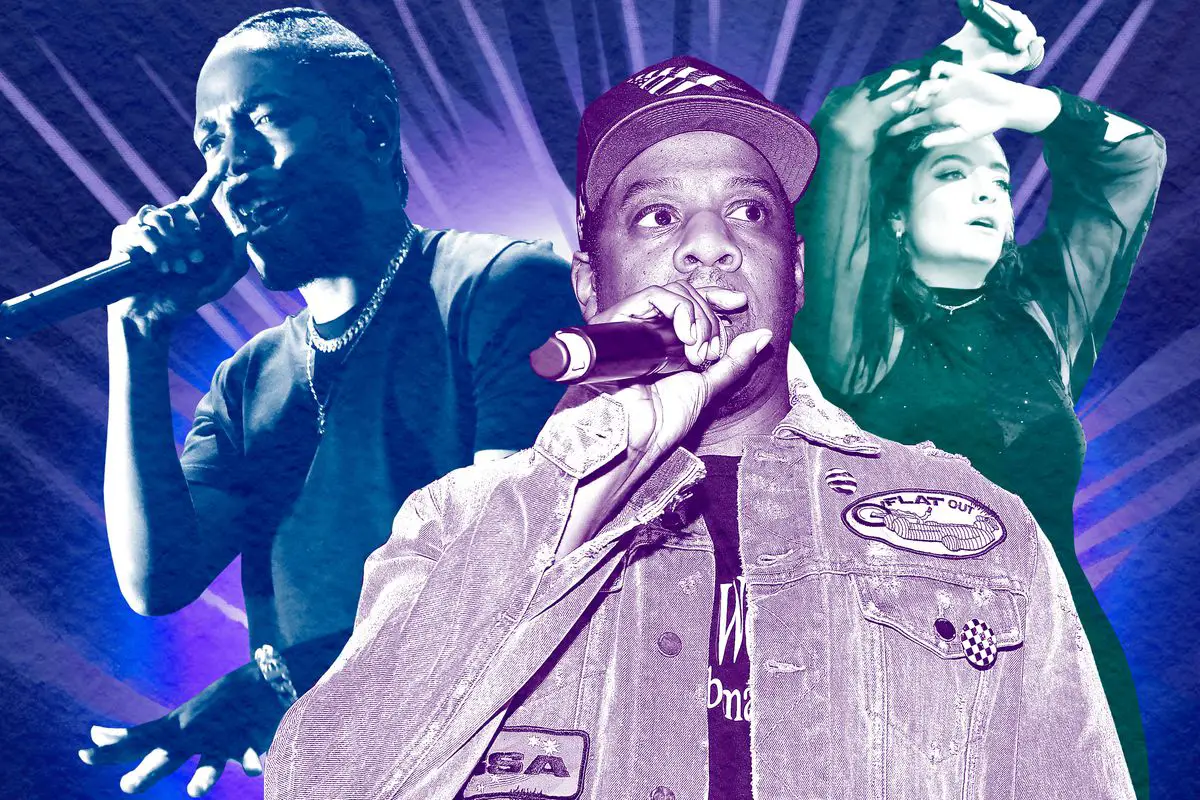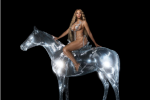The Grammys have made a few fatal mistakes in the past few years. It began in 2014 when Daft Punk’s “Random Access Memories” won album of the year over Kendrick Lamar’s “Good Kid, M.A.A.D City.” Daft Punk’s album was a good release, sure, but did it match the cultural sway of an album that topped multiple end-of-year lists? It happened again in 2015 when Beyoncé’s arresting and disruptive self-titled release lost to Beck’s “Morning Phase.” Then came 2016 and 2017 when Taylor Swift, of all people, edged out Kendrick Lamar’s third release, and Adele beat out Beyoncé. Is consistency worth nothing?
The issue of diversity, too, came to the fore of the discussion of Grammy nominations. Adele’s victory over Beyoncé led to the hashtag initiative “#GrammysSoWhite,” which shone a light on the frequent losses of preternatural artists of color. Similar hashtag initiatives calling out award committees for film and television spread across Twitter and other social media platforms. While the Golden Globes were not so inclusive this year, snubbing multiple female directors, the Grammys nominations in the big four categories for 2017 finally honor artists of color.
Album of the Year
- “Awaken, My Love!” – Childish Gambino
- 4:44 – Jay-Z
- Damn – Kendrick Lamar
- Melodrama – Lorde
- 24K Magic – Bruno Mars
In the category for album of the year, the ceremonial highest honor that the Grammys can bestow, there are no white men. This has not occurred since 1999 when Lauryn Hill won for her solo debut album. In light of the past four years, the nominations show that The Recording Academy is listening to the voices of music consumers. Kendrick and Beyoncé’s shocking losses will never be forgotten, but stacking the most important category with artists like Bruno Mars and Childish Gambino is an important, albeit nominal gesture.
In terms of the predicted artist to win, Kendrick Lamar and Lorde have the edge. The wounds of Lamar’s previous losses are fresh. To award someone else, after nominating Lamar’s three albums in five years for the highest honor, would just salt them. Consistency should be taken into account, which is also true for Lorde. Her sophomore album was acclaimed, with critics citing Lorde’s maturation as an artist and producer. She melds fashionable pop style with a level of high artistic merit and would be truly deserving of the honor.
Record of the Year
- “Redbone” by Childish Gambino
- “Despacito (Remix)” by Luis Fonsi and Daddy Yankee featuring Justin Bieber
- “The Story of O.J.” by Jay-Z
- “Humble” by Kendrick Lamar
- “24K Magic” by Bruno Mars
Record of the year is a category that is fraught with a little less tension. The category honors certified bops: those songs that you hear in the grocery store, when you turn on the Top 40s radio, or on the playlist at a really basic house party. There’s nothing wrong with that! These songs have an instantly recognizable hook and a beat that makes you want to move your feet.
Against these criteria, most of the nominees stack up. “Redbone” cemented its legacy early in the year when everyone suddenly discovered audio distortion and when director Jordan Peele used it in the credits of “Get Out.” Everyone and their mother was bumping and grinding to “Despacito,” even if they didn’t know what Justin Bieber was saying. (Did he?) “Humble” triumphantly announced Lamar’s new era, with a stunningly simple piano riff that drives the track hard. The odd duck in this category is Jay-Z, whose release doesn’t have airplay that the others do.
Song of the Year
- Ramón Ayala Rodríguez, Justin Bieber, Jason Boyd, Erika Ender, Luis Fonsi & Marty James Garton Jr for “Despacito” by Luis Fonsi & Daddy Yankee ft. Justin Bieber
- Shawn Carter & Dion Wilson for “4:44” by Jay-Z
- Benny Blanco, Mikkel Storleer Eriksen, Tor Erik Hermansen, Julia Michaels & Justin Drew Tranter for “Issues” by Julia Michaels
- Alessia Caracciolo, Sir Robert Bryson Hall II, Arjun Ivatury, Khalid Robinson & Andrew Taggart for “1-800-273-8255” by Logic ft. Alessia Cara & Khalid
- Christopher Brody Brown, James Fauntleroy, Philip Lawrence, Bruno Mars, Ray Charles McCullough II, Jeremy Reeves, Ray Romulus & Jonathan Yip for “That’s What I Like” by Bruno Mars
Where record of the year honors performance and production, song of the year honors achievements in songwriting. While the nominees in this category don’t necessarily reflect the best songs written this year, the pool is incredibly diverse.
As a Spanish-language song, the nomination for “Despacito” shows the song’s cultural weight and how much it transcends the borders of language. It’s a favorite to win, for sure. Bruno Mars and Jay-Z belong here, too, for their songs demonstrate their abilities to adhere popular styles while not losing themselves. The nominations for Julia Michaels and Logic are misplaced, for their tracks don’t seem fully formed.
Best New Artist
- Alessia Cara
- Khalid
- Lil Uzi Vert
- Julia Michaels
- SZA
The best new artist category is the most interesting out of the big four. The pool of nominees represents the best and brightest for the future of music, which is always changing. It doesn’t have the troubled legacy of album of the year or the ephemeral qualities of record and song of the year. On top of that, the competition is less stiff, since household names move up and out quickly. Young and promising artists can expect the attention and accolades to give their following work the attention it needs to mature.
The pool of nominees has almost split down the middle of pop and R&B and comprises a diverse cast in terms of race and gender. In terms of musical genre and approach, too, the artists vary widely: Lil Uzi Vert is one of emo rap’s pioneers, Julia Michaels and Alessia Cara work with Spears-style pop, Khalid and SZA delve deep into the pools of R&B and soul. SZA and Lil Uzi Vert have the advantage, for their releases were more complex and well-considered. In any case, it’s refreshing to celebrate the bright future of music, rather than dwell on its past.

















